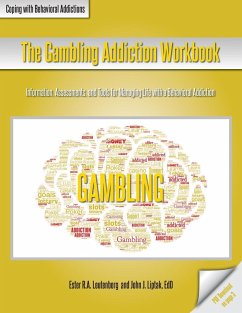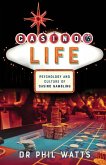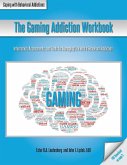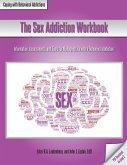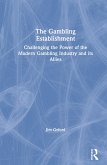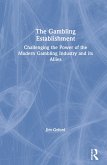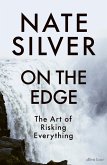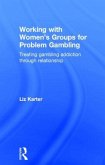Gambling addiction¿also known as pathological gambling, compulsive gambling, or gambling disorder - is an impulse-control disorder. Compulsive gamblers struggle to control the impulse to gamble, even when it has negative consequences for them or their loved ones. They will tend to gamble whether they are winning, or losing, broke, or ahead financially. They keep gambling regardless of the consequences, even when they know that the odds are against them or they cannot afford to lose. Gambling problems vary in intensity. People who are addicted can also have a gambling problem without being totally out of control. Gambling addiction or gambling disorder is defined as: persistent and recurring problematic gambling behavior that causes distress and impairs your overall livelihood. The purpose of The Gambling Addiction Workbook is to provide helping professionals with cognitive and behavioral assessments, tools, and exercises that can be utilized to treat the root psychological causes of a gambling addiction. It is designed to help people identify and change negative, unhealthy thoughts and behaviors that may have led to a gambling addiction. The activities contained in this workbook can help participants identify their triggers that lead to gambling and teach them ways to overcome and manage those triggers. The Gambling Addiction Workbook will help participants to: Recognize that they are experiencing an addiction problem. Reflect and become aware of the behaviors that were part of and arose from the addiction. Build self-esteem in positive capabilities outside of gambling. Understand the triggers for preoccupation with gambling. Develop greater self-acceptance and the ability to change ineffective behaviors. Understand recurring patterns that indicate a gambling disorder. Learn ways to live a new life without the need to gamble. The Gambling Addiction Workbook is a practical tool for therapists, counselors, and helping professionals in their work with people suffering with behavioral addictions. Depending on the role of the person using this workbook and the specific group's or individual's needs, the modules can be used either individually or as part of an integrated curriculum. The facilitator may choose to administer one of the activities to a group or administer some of the assessments over one or more days as a workshop. The Five Modules This workbook contains five separate modules of activity-based handouts that will help participants learn more about themselves and about their addiction to gambling. These modules serve as avenues for self-reflection and group experiences revolving around topics of importance in the lives of the participants in the group. The activities in this workbook are user-friendly and varied to provide a comprehensive method of analyzing, strengthening, and developing characteristics, skills, and attitudes for overcoming an addiction to gambling. All activities in this workbook are completely reproducible and can be photocopied and/or revised for direct participant use. Module 1: My Gambling History Module 2: Awareness of Gambling Module 3: Money Issues Module 4: Effects of Gambling Module 5: Finding Healthy Alternatives
Hinweis: Dieser Artikel kann nur an eine deutsche Lieferadresse ausgeliefert werden.
Hinweis: Dieser Artikel kann nur an eine deutsche Lieferadresse ausgeliefert werden.

